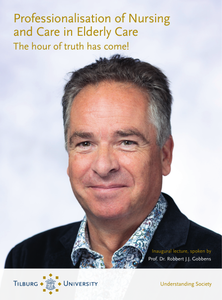Dutch Sport Federations Changing into Market Oriented Organizations: The Institutional Theory Applied on Three Case Studies
In 2005 and 2006, almost sixty Dutch National Sport Federations (NSFs) participated in a special program for creating a marketing strategy for the next four years. This program was initiated and organized by NOC*NSF (the Dutch Olympic Umbrella Sports Organization). The NSFs had to joint the project to receive funds. For most of them it was the first time they seriously analyzed the market with the aim of developing new programs. The purpose of this paper is to explore to what extent Dutch NSFs are capable to change their structures to become more market oriented and more market responsive in order to write strategic plans.
The changed structures are investigated using the "institutional theory" (Tolbert & Zucker, 1996) and are explained by exogenous (market context and institutional context) and endogenous (interests, values, power dependencies, and capacity for action) dynamics from the neo-institutionalist framework (Greenwood & Hinings, 1996). In 2005 NSFs were expected to be in a pre-institutionalized stage, i.e. they were supposed to develop new organizational structures in response to specific problems (Kikulis, 2000). Now, approximately 1½ years after finishing their strategies, the question arises whether they have reached the semi-institutional stage, i.e. whether the new structures or actions are diffused across organizations, yet still subject to change and whether old structures are yet eroding (Kikulis, 2000).
Methods
Studying the intended structural change of NSFs requires an in-depth study of their social reality and the reactions and interpretations of involved actors, including their applied meanings to certain situations. Greenwood & Hinings (1996) plead for detailed comparative case-studies when studying institutional changes. Therefore three NSFs has been selected: The Royal Dutch Korfball Federation (KorfFed); The Royal Dutch Billiards Federation (BillFed); and the Dutch Jeu de Boules Federation (JeuFed). These three federations differ on size, amount of housed sports, number of associated clubs, sorts of intermediary decision making bodies, employed FTE's, and more. Therefore it is expected that the tempo of institutionalization of the new, market oriented, structures, will differ among them.
Sugden & Tomlinson (2002) developed a multi-method style of qualitative research for making sense of the deep, inside information below the surface of everyday life. They call it the "Brighton method. Applying the Brighton method for this research implies that the three cases will be studied with respect to their history, their present marketing actions, their results and the changes in their organization. In-depth interviews, document analysis (policy plans, marketing plans and more), and where possible observations and participations are used to create a critical and investigative view of the organizations in change.
Results
The KorfFed used the marketing program to further develop existing programs. Although the outcomes of these programs were not new, the program has opened the eyes of the president, director and staff members. They are now conscious of the urgency of a market orientation, and a marketing orientation (a marketing position has already been introduced), and they see opportunities in attracting non-competition playing korfball players. They have, however, not yet reached the phase of semi-institutionalization of the market oriented structures. This can be concluded from the following:
- The organization still has an ad-hoc character;
- Some board members still make decisions based on their own insights rather than on information from the professional part of the organization;
- Decisions to start programs are still grounded on subsidy possibilities rather than on market possibilities.
Interest dissatisfaction and power dependencies are the main dynamics that form barriers in the planned organizational change.
The BillFed is a federation that covers four disciplines, i.e. pool, snooker, carom, and billiard 3 cushions. The federation used to act upon these four disciplines. The marketing program has made clear that the BillFed should act upon target groups instead of on these disciplines. Therefore, the federation created a vision to reach youth, young adults, as also elderly people. Carrying out this new vision requires a market orientated structure (focus on target groups) instead of an internal orientated structure (focus on discipline groups). This new vision is created on an upper level (general board together with professional staff) in the organization. This federation also introduced a professional marketing position. Unfortunately, the underlying layers remain slightly passive and are not willing to work along the new structures, which mean that the new structures have not been diffused across the whole organization. Interest dissatisfaction, value commitments and power dependencies are the problematic dynamics.
The JeuFed used to have a strong competition and tournament (internal) orientation, while many jeu-de-boules players play the game just for fun. The marketing program has created the insight that the just-for-fun players are also an important target group. Hence, 3 projects are developed to make club membership more attractive for all jeu-de-boules players. Since the federation never worked with projects before, they just found out that implementing projects such as these requires new structures. The JeuFed has just arrived in the pre-institutionalized phase, still far away from the semi-institutionalized chapter. Power dependencies and a lack of capacity for change are influencing dynamics in this case.
Discussion
Although it is already 1½ years ago that Dutch NSFs finished their marketing program, in none of the described cases the new structures have reached the semi-institutional stage. These new structures or actions are not yet diffused across the organizations, and the old structures are not eroding. In all three cases another combination of endogenous dynamics are influencing the process of organizational change. Continuing research is needed to find out whether these federations will ever reach the next stage of institutionalization and which dynamics will play an important role.
